Tucked into the small suburban community of East Oreland, PA, just about 16 miles from Philadelphia, find Cultivating Joy Flowers, a specialty cut flower farm run by Lynn Rapp and her husband, John. Rapp, a northeast Philly native, founded her farm one town over from where she grew up, and has been pursuing the passion for plants and flowers that she’s had since childhood. As a kid, she’d help her dad in the family vegetable garden, and went to a vocational high school with a focus in horticulture. Later, she attended Temple University’s Ambler Campus for classes in ornamental horticulture and landscape design, and received Longwood Garden’s certificate of Merit in horticulture.
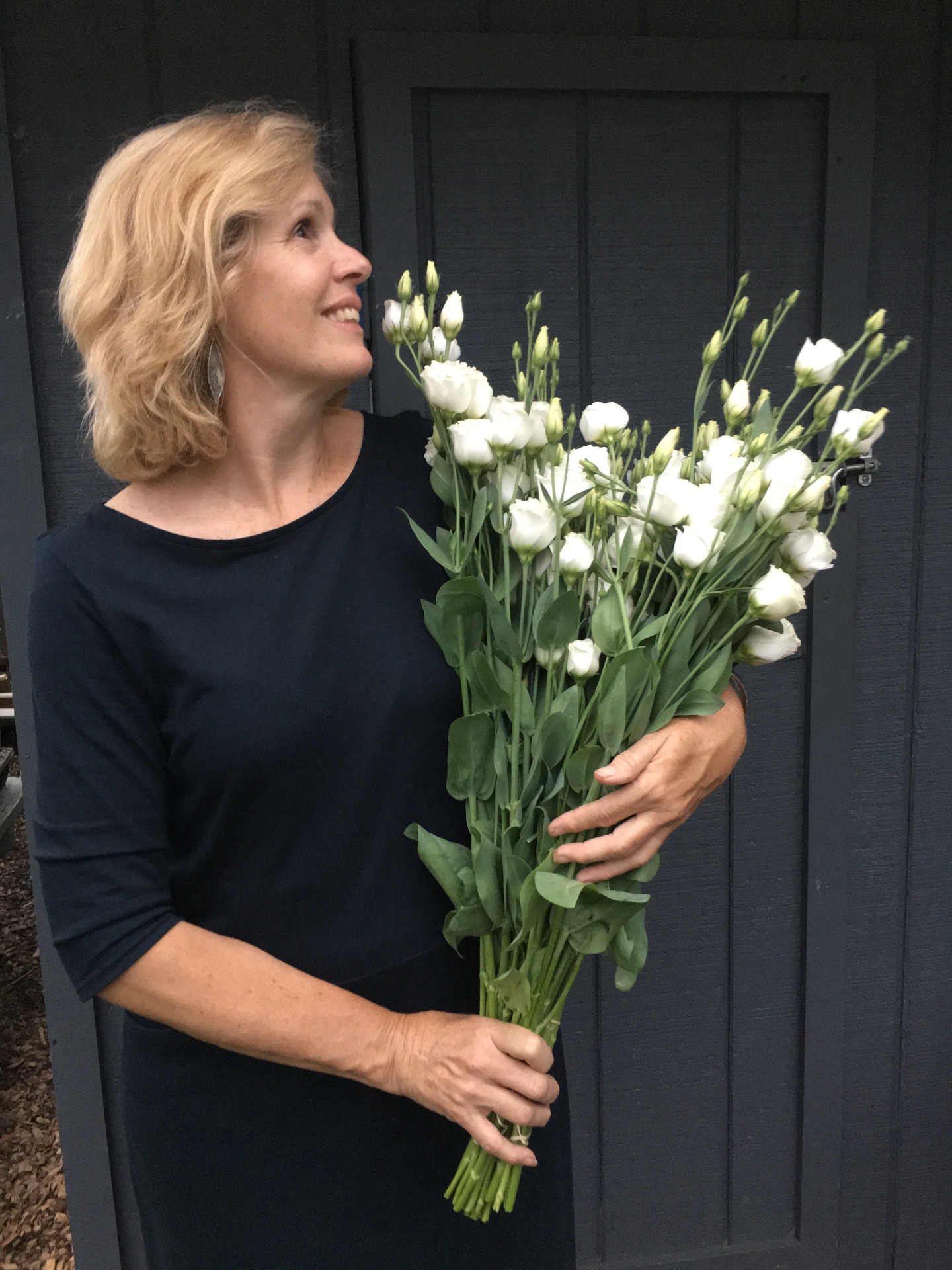
Lynn Rapp, owner of Cultivating Joy Flowers
Since 2013, Rapp has been applying her passion for horticulture to her tiny patch of Pennsylvania green. She sells her beautiful blooms at the American Street Flower Market in Kensington in Philadelphia; she also sells wholesale to designers, and makes bouquets and arrangements for weddings and events. We enjoyed the chance to chat with her to talk about how she’s made her business blossom!
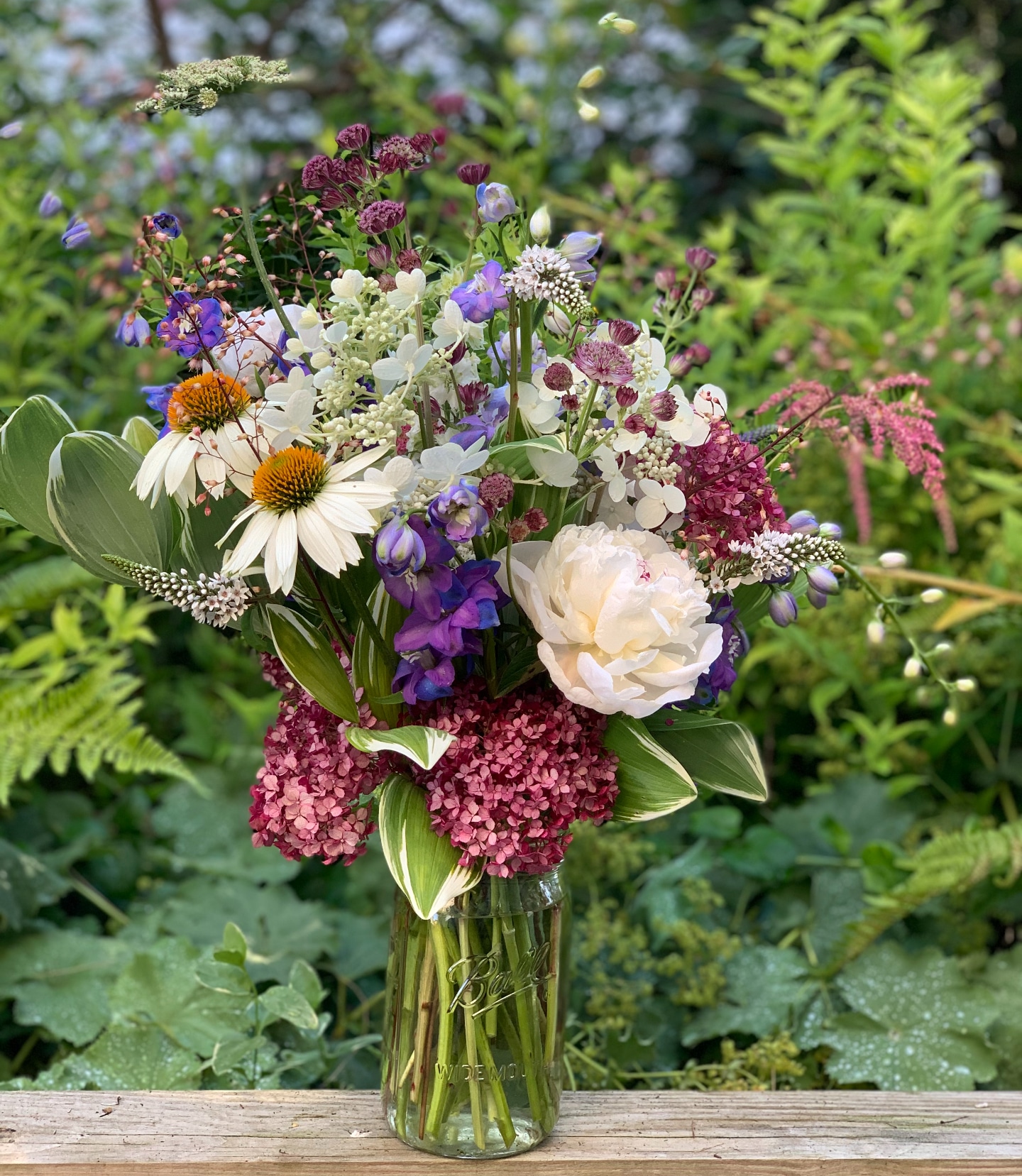
PA Eats: Has gardening always played a big part in your life? Was it your plan to make a career in flower farming?
Lynn Rapp: I’ve always known that I wanted to work with plants in some way, shape or form. My jobs have all been horticulturally related, from working as a landscape designer, owning my own gardening business and working at a local garden center. My current off-farm job is writing web content and providing social media marketing for independent garden centers with a small marketing company in Delaware County called Garden Center Solutions. I never, however, in my wildest dreams, imagined that I would be a cut flower farmer!
So how did you arrive at starting Cultivating Joy?
I started my business eight years ago. My husband and I were vacationing in Stonington, Connecticut, and the Airbnb that we booked was on a flower farm. I had no idea that anyone farmed flowers! I was so intrigued by our host and her profession that, immediately upon returning to PA, I began to seek out flower farms in and around Philly. There were only two in existence at that time, one in Bucks and one in Philadelphia County. I volunteered at Jennie Love’s Philly flower farm, Love ‘n Fresh Flowers, for one summer and decided that I wanted to pursue my new-found passion full time.
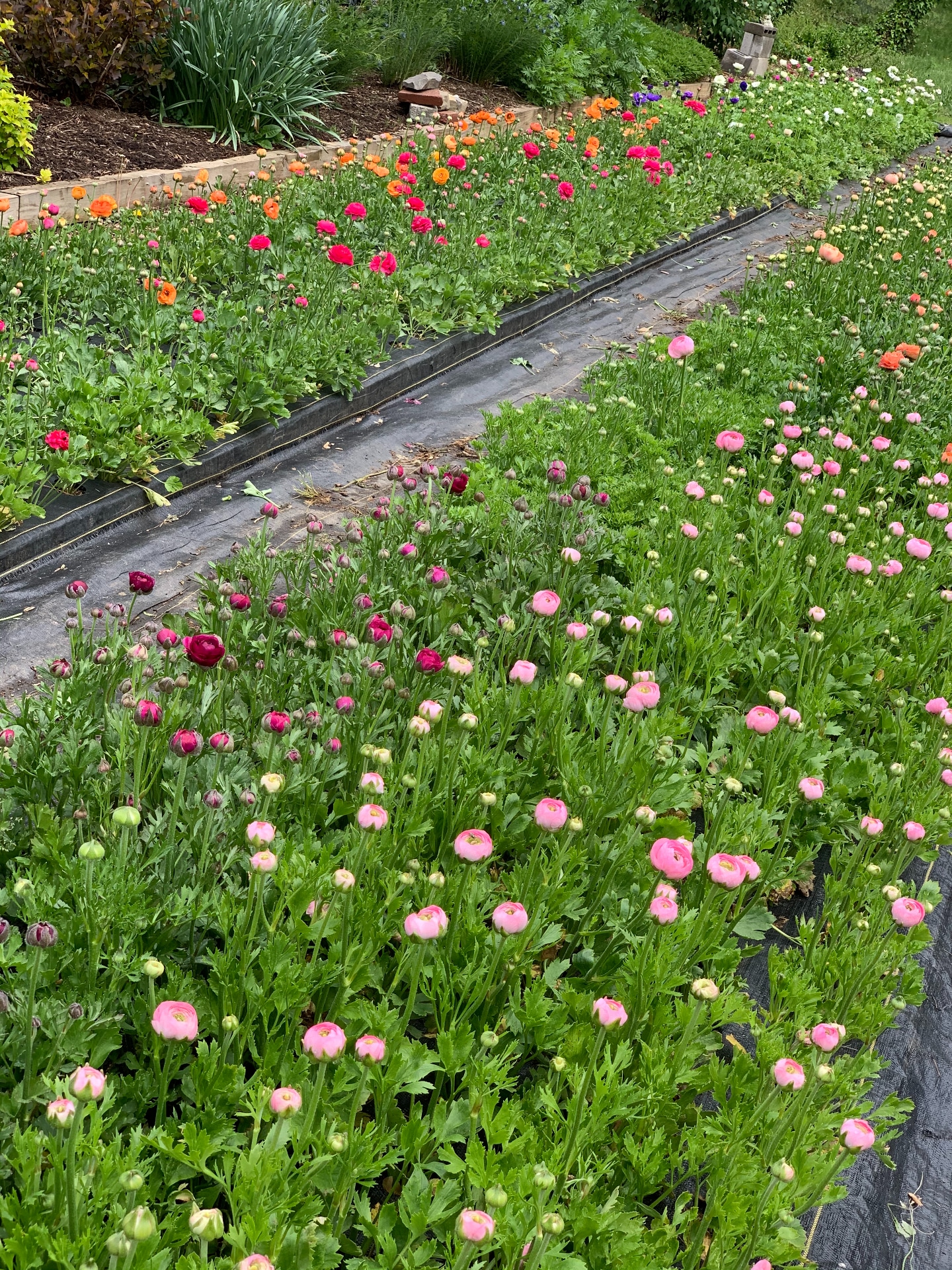
I joined the Association of Specialty Cut Flower Growers — a must for all flower farmers — and devoured every book that I could get my hands on that might appear helpful. The absolute best resources for new flower farmers are Lynn Byczynski’s The Flower Farmer and Jean-Martin Fortier’s The Market Gardener. Although the latter was written for small scale vegetable farmers, so much of Fortier’s information and his technique is applicable and useful to the cut flower farmer, as well.
Next, I researched resources, ordered seed, created beds everywhere I was able on our quarter-acre property, and began selling bouquets at our local farmers market. During this time, there happened to be a small group of cut flower farmer wannabes, just like me, starting their farms in Philly and the surrounding countryside. We banded together, shared ideas and information, split flower plug trays and seed orders, and basically supported one another through the beginnings of our new businesses. All of these farms are still operating, each successfully, each unique!
How did you find your land? Can you describe your flower farm?
Cultivating Joy is a suburban micro-farm. I’ve always felt that my home should serve me, instead of me serving it. I’ve planted just about every square inch of our quarter-acre suburban property. Demand for our product increased rapidly early on, so we expanded by renting as many community garden plots that we could get our hands on. These plots are about a mile away from our home, totaling up to about another three-quarters of an acre. It always amazes me how much we can produce on such limited space.
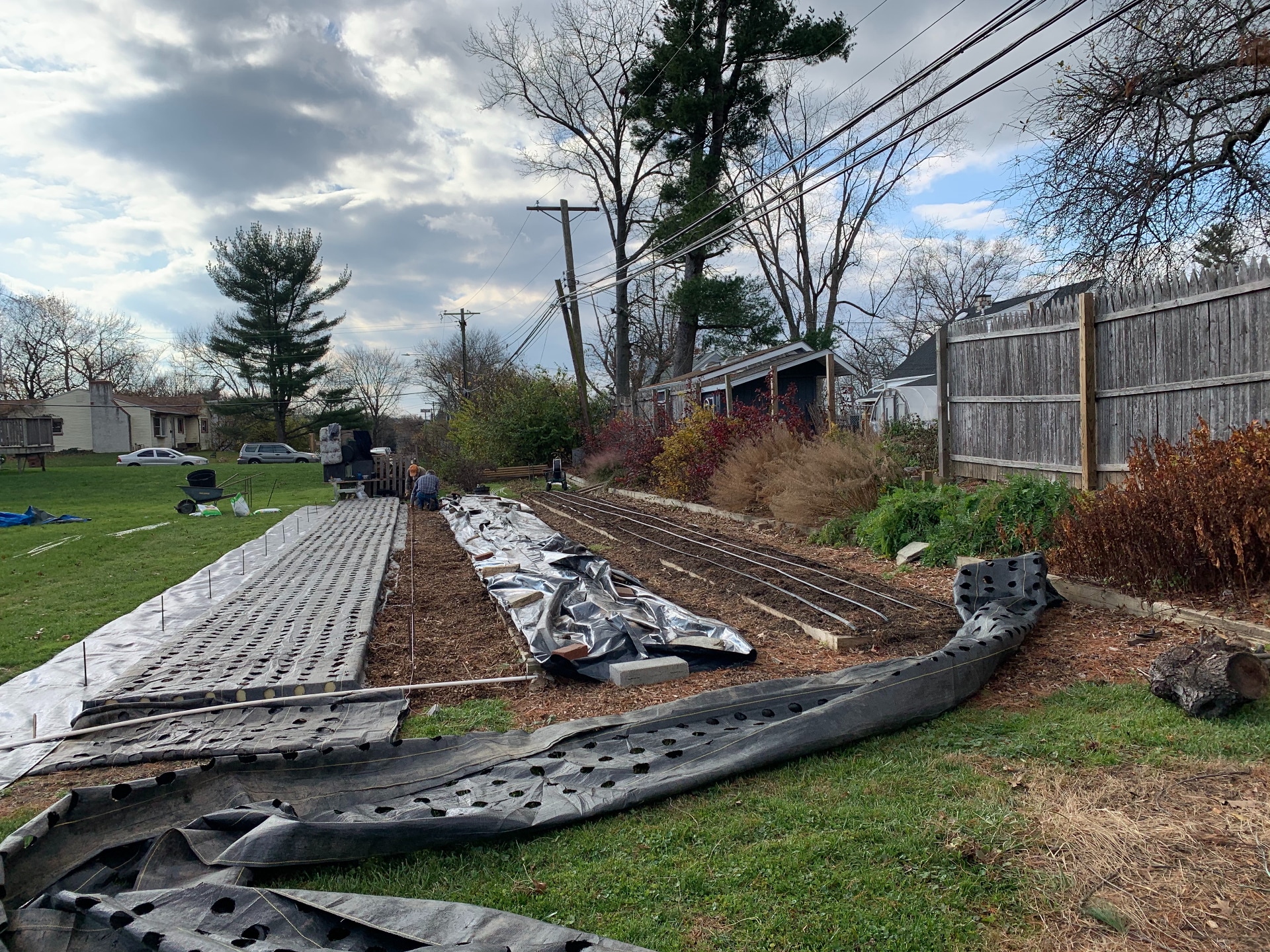
What were some of the learning curves in learning to be a flower farmer?
There is an enormous amount of cut flower information available through books, the internet, like-minded social media groups, classes and so on. Our farm’s practices and offerings change yearly, based on new growing information and what has done well for us the prior year. Farming is a lot of trial and error, there is no avoiding that. I’ve learned that healthy soil is my farm’s most valuable asset and that its care is paramount in growing quality cut flowers. I’ve learned to put soil health first.
Since I’ve always love plants and growing, one the biggest learning curves for me has been the business side of farming. This continues to be a struggle for me. I would rather be planting than sitting at a desk, but the business side of farming is real and cannot be ignored.
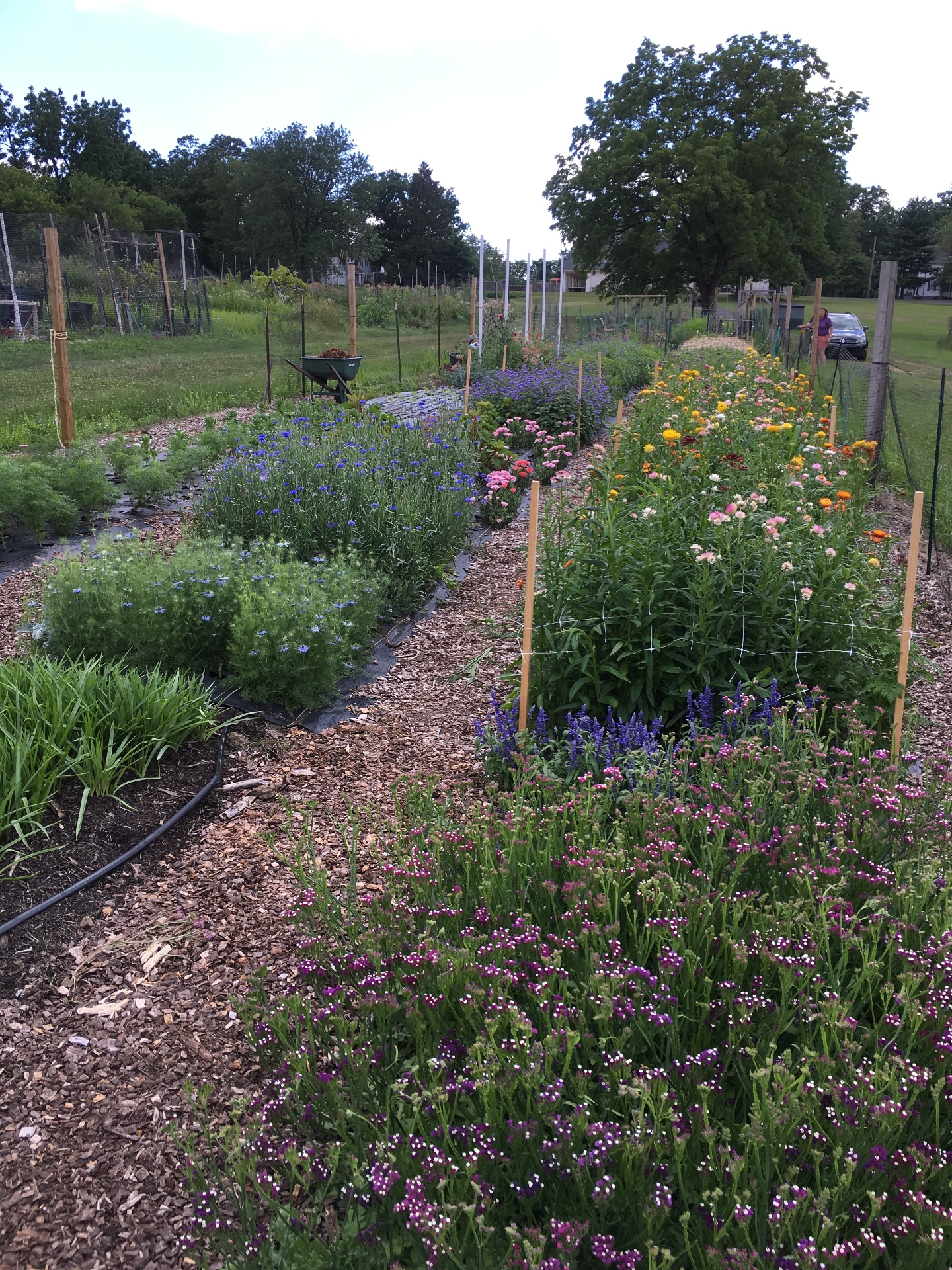
It’s cool that farming can happen in suburbs and not just “the county” or urban farms. Do people seem surprised by your location?
I used to feel like I wasn’t a “real” farmer simply because I did not have acreage in the country, or I was not transforming urban blight with my flowers. I’ve come to really love and embrace suburban farming when I finally allowed myself to “bloom where I was planted.” Usually, when a florist or event designer shows up for the first time to pick up their order, they are pleasantly surprised to see our suburban farm. Our neighbors tell us that it is beautiful, but it is a working farm and can get a little messy during busy times.
What’s the most awesome part about flower farming? What’s one of your biggest challenges?
Flower farming is all-around awesome — but really hard — work. Among its most cherished assets is the fact that it allows me the opportunity to immerse myself in nature and adjust my rhythm to flow with the seasons. It affords me plenty of quiet time to reflect and pray. It contributes greatly to my mental, physical and spiritual health. I’ll never, ever tire of the wonder of a seed sprouting to life or a plant pushing up through the earth. It brings me such joy and will always be a miracle to me. I love harvesting in the early evening, that golden hour, when all is peaceful and quiet and aglow.
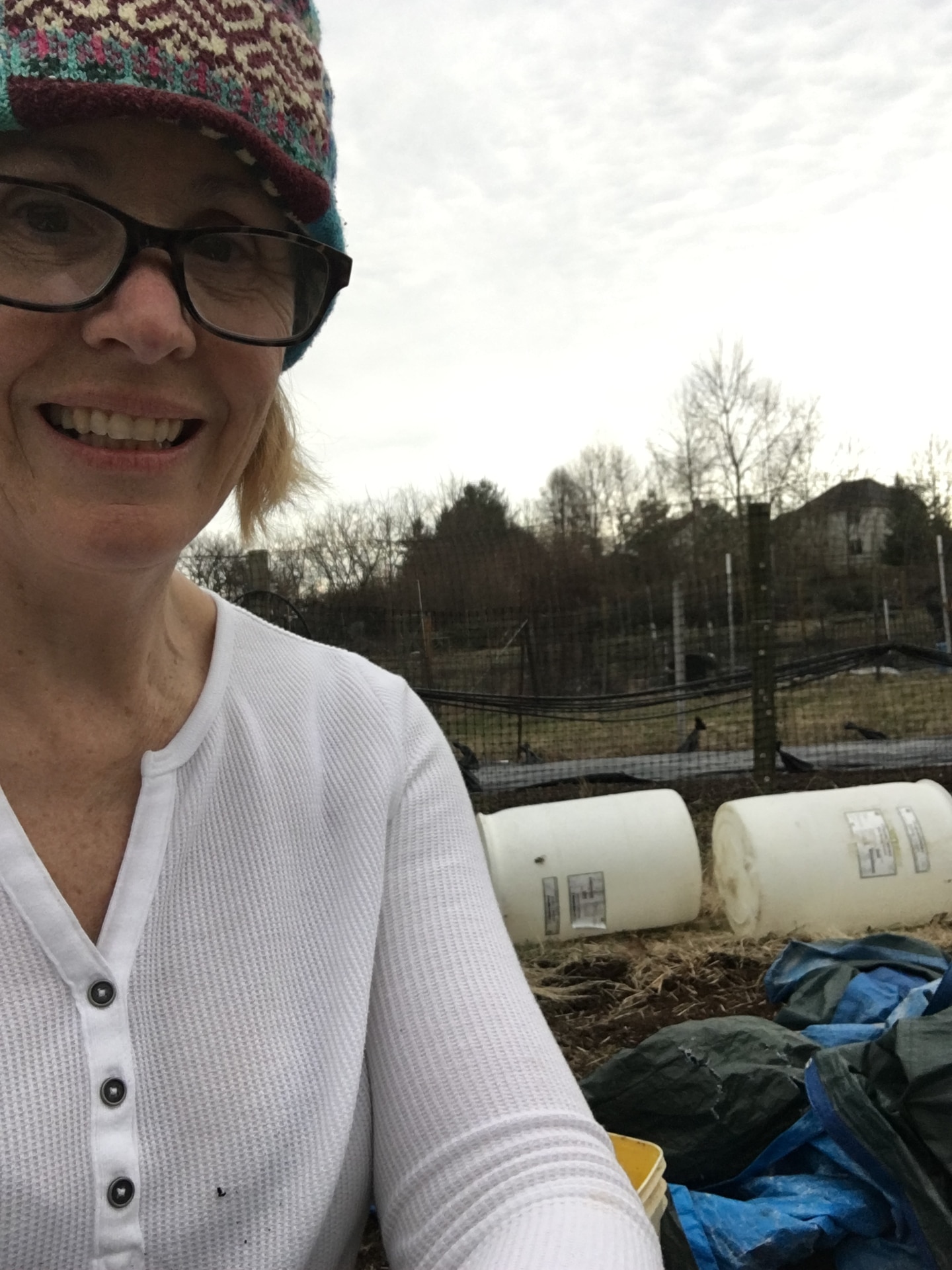
The biggest challenges that all farmers face, I believe, are the very long hours and weed, pest and plant disease problems. We grow sustainably and, because we are so small, we do everything, and I mean everything, by hand. No tractors for bed prep and we only hire help occasionally for specific projects. By October we are pretty damn tired.
What kinds of flowers do you grow? Anything offbeat or unexpected?
Our flower offerings change with the seasons. Here in Montgomery County, PA, our growing season begins in March and lasts until a hard frost hits, sometime in October. Right now, dahlias are hot! We can never grow enough.
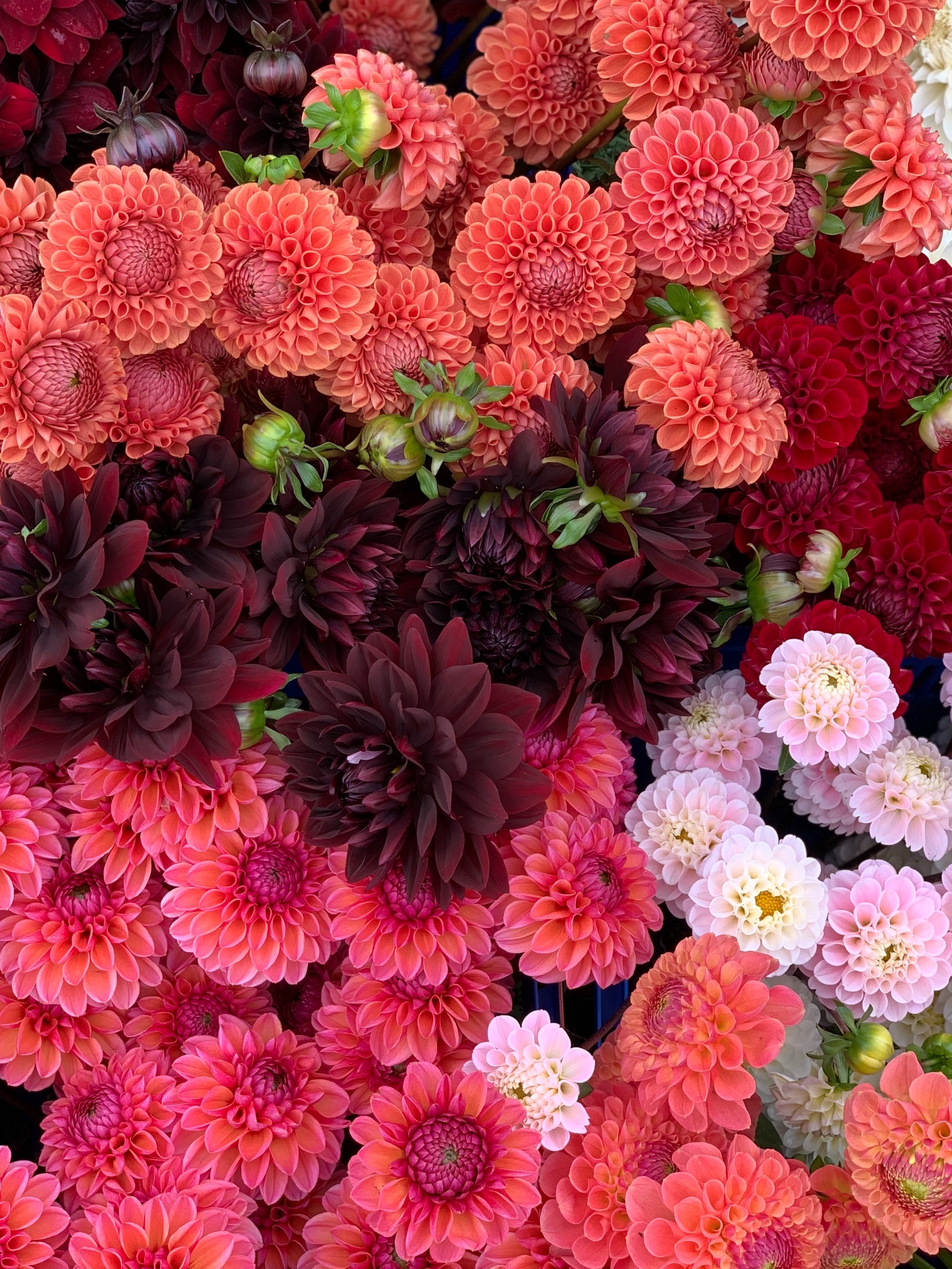
Specialty mums are another important fall crop. Soon we’ll be building low tunnels that will protect our anemone and ranunculus plants over the winter for spring sales. Tulips, daffodils and peonies are also in the lineup for spring. In the summer there are so very many flowers to grow and enjoy, like lisianthus, zinnias, salvia, rudbeckia, celosia, cosmos and more. We are always looking for something new and unusual to plant for our designers, so it’s important to keep on top of new plant introductions that just might make a good cut flower.
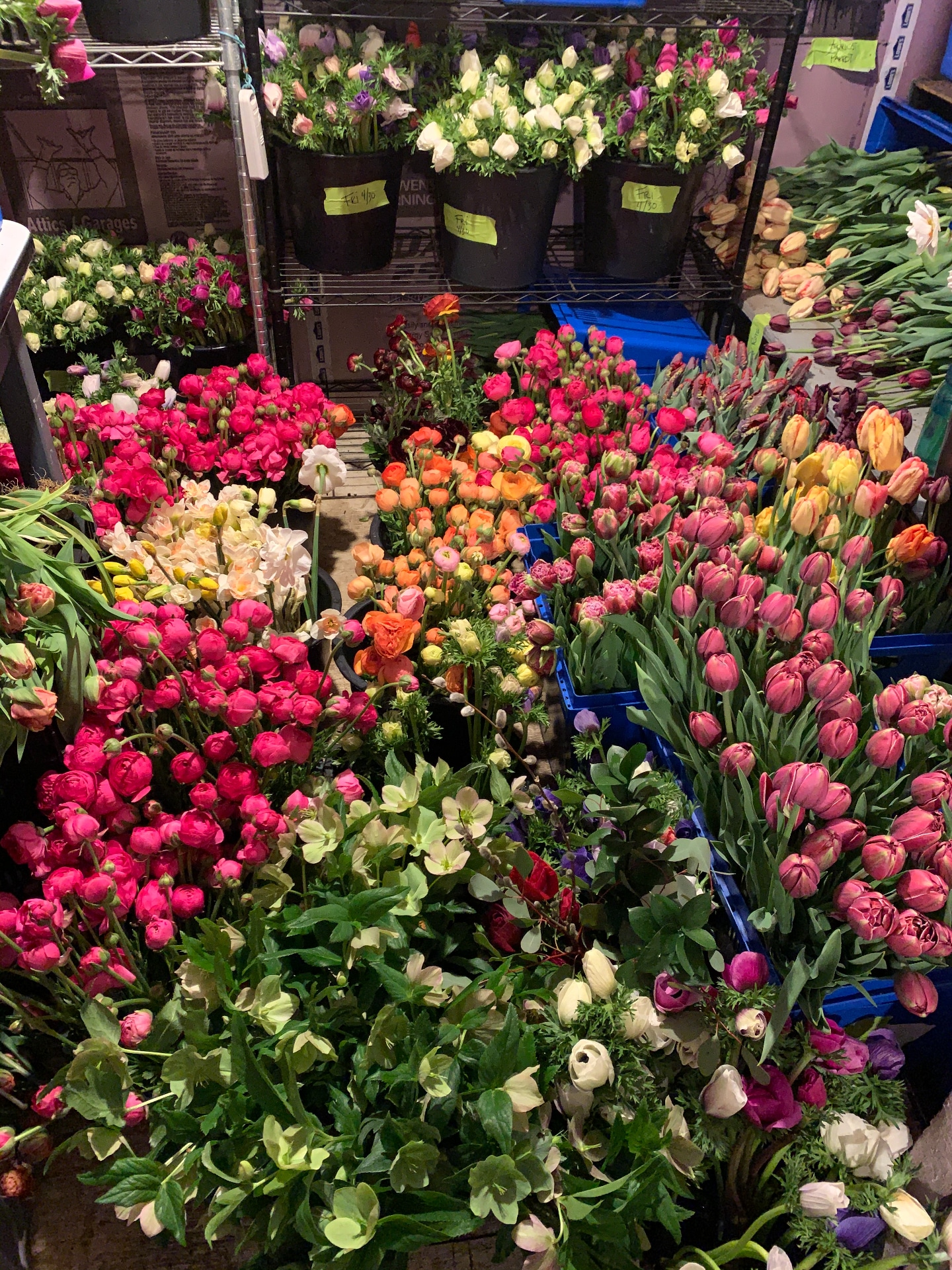
We also grow foliage, including a variety of eucalyptus. We cultivate a number of shrubs, like hydrangea, physocarpus and weigela for their cut flowers and foliage. Our perennial offerings, like astilbe, Japanese anemone and echinacea, always seem to be able to bridge the seasons as a new annual crop is beginning to emerge. Just this year, we have started drying flowers for winter sales.
How do you go about working with wholesale and wedding clients?
We sell our flowers wholesale, predominantly to event designers and florists. We issue a weekly availability list where our customers can order directly from us, or they may also purchase our flowers through American Street Flower Market. We have offered wedding flower design services in the past, but no longer. We can’t keep up with the demand for our flowers so, for now, we’ve put weddings on the back burner.
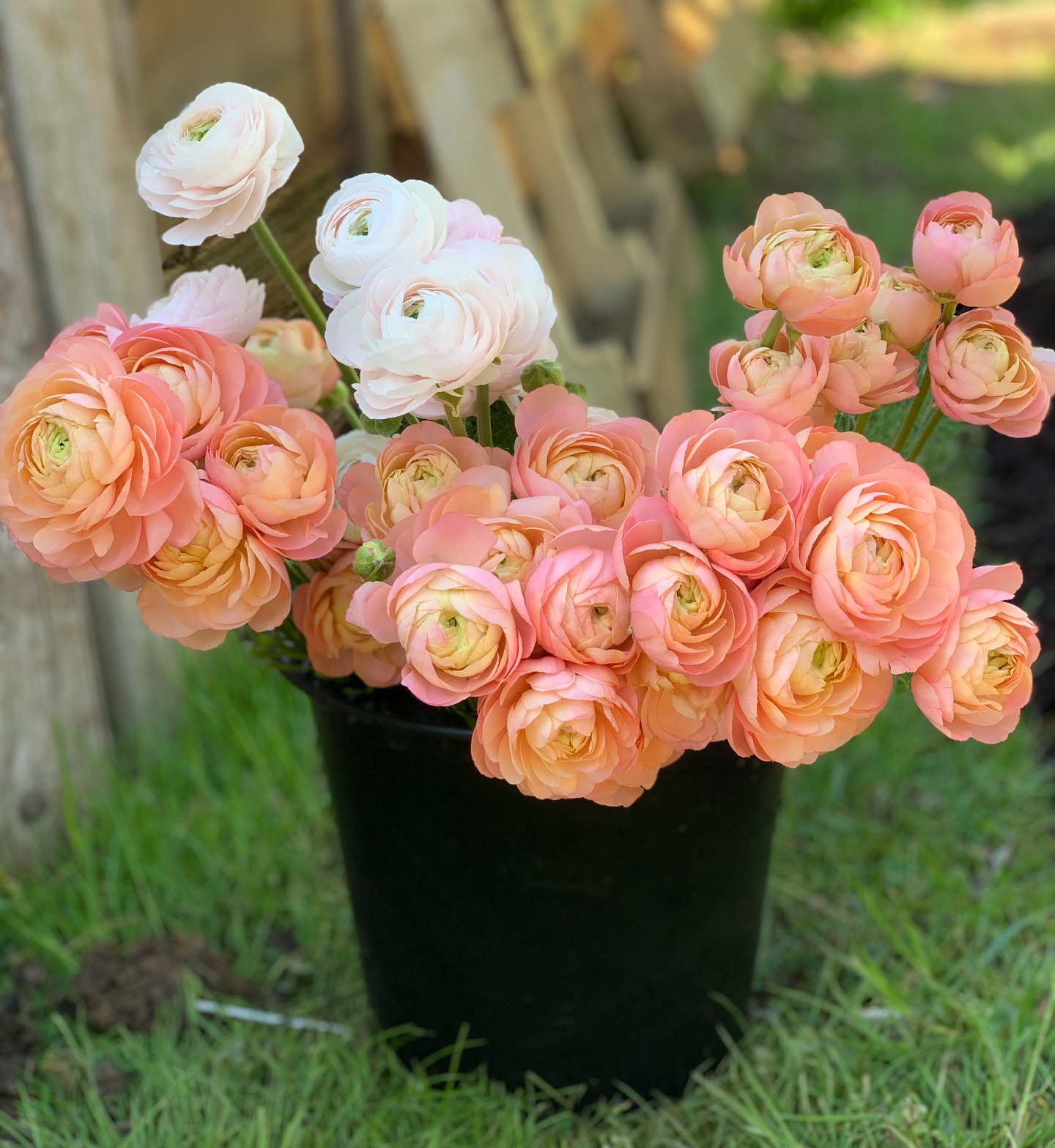
Where else can people find your flowers?
We also sell retail bouquets, most weekends, during the growing season, at our flower stand in front of our home. This allows us to spread the joy in our own neighborhood. Next year, we’ll be expanding our CSA bucket offering. Keep an eye on our new website for updates.
Thanks to Lynn Rap for sharing her story with us! For more gorgeous flower photos to brighten up your day, follow along on her Pennsylvania flower farming adventures through her Instagram account, @cultivatingjoyflowers!
- Photos: Cultivating Joy Flowers
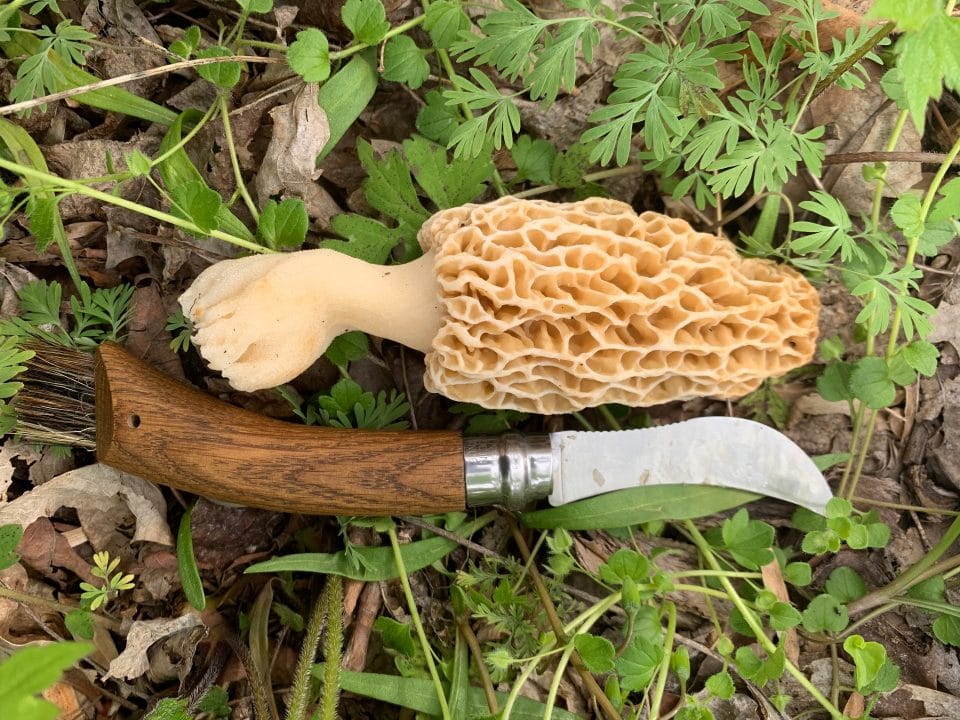
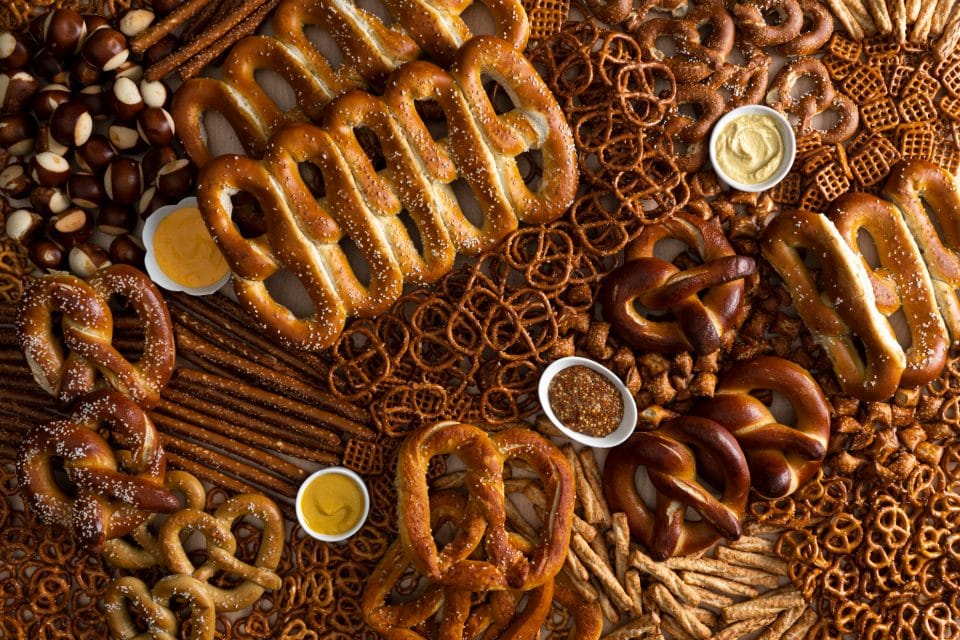
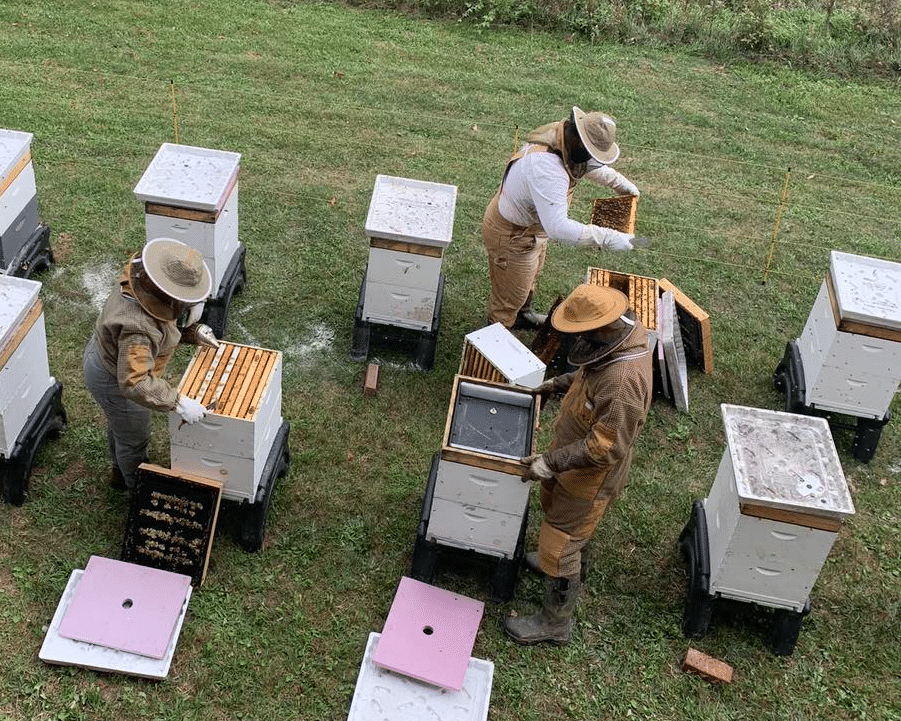
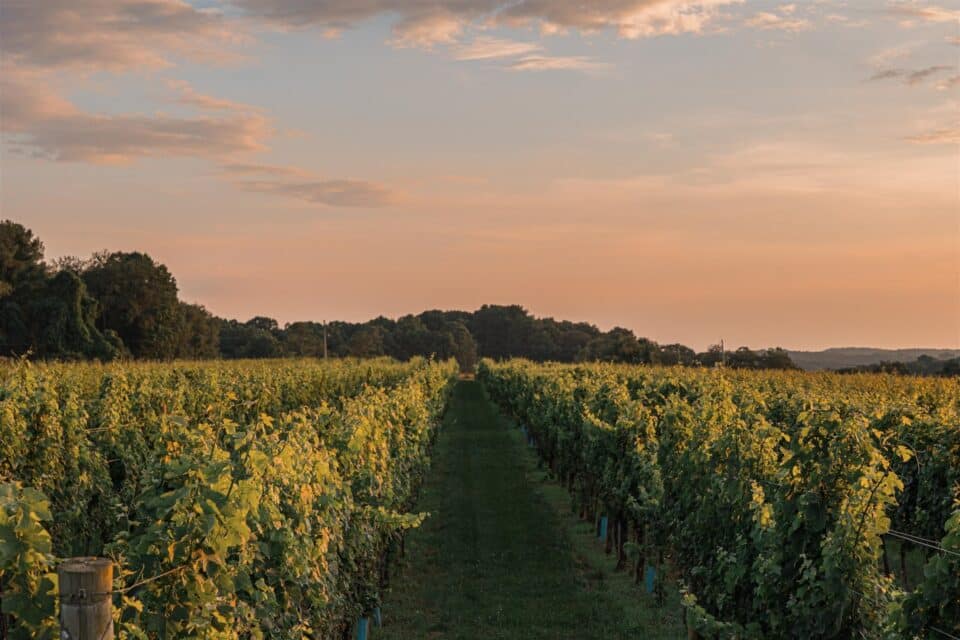

2 Comments